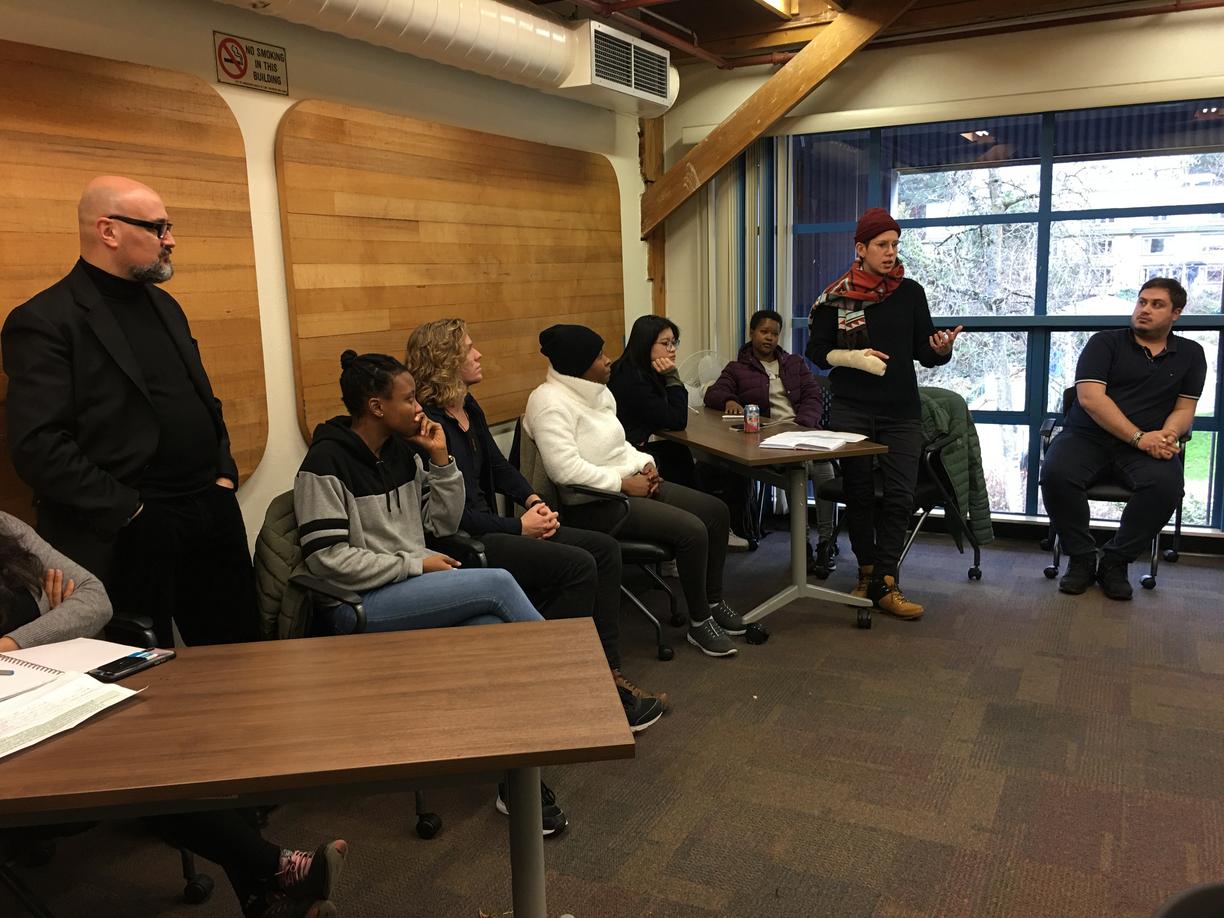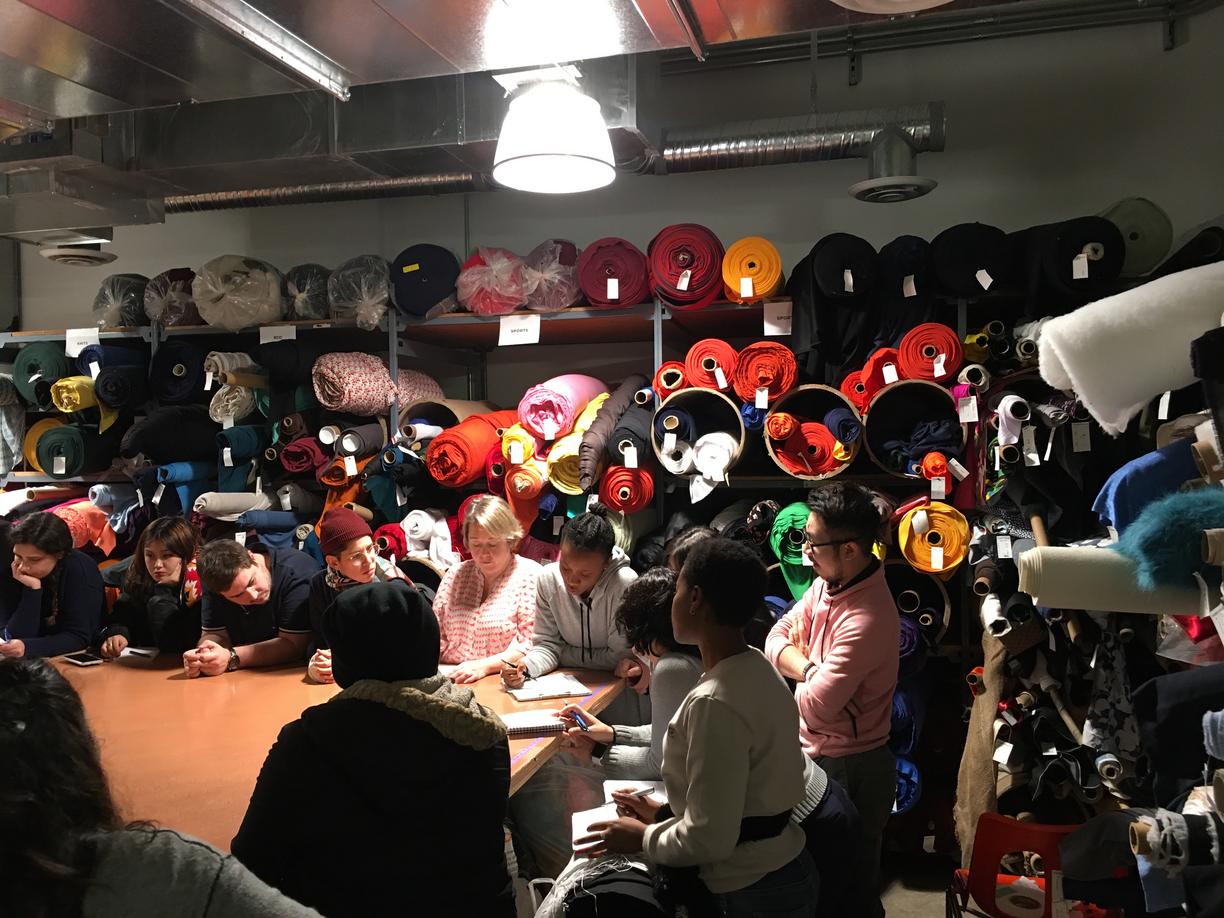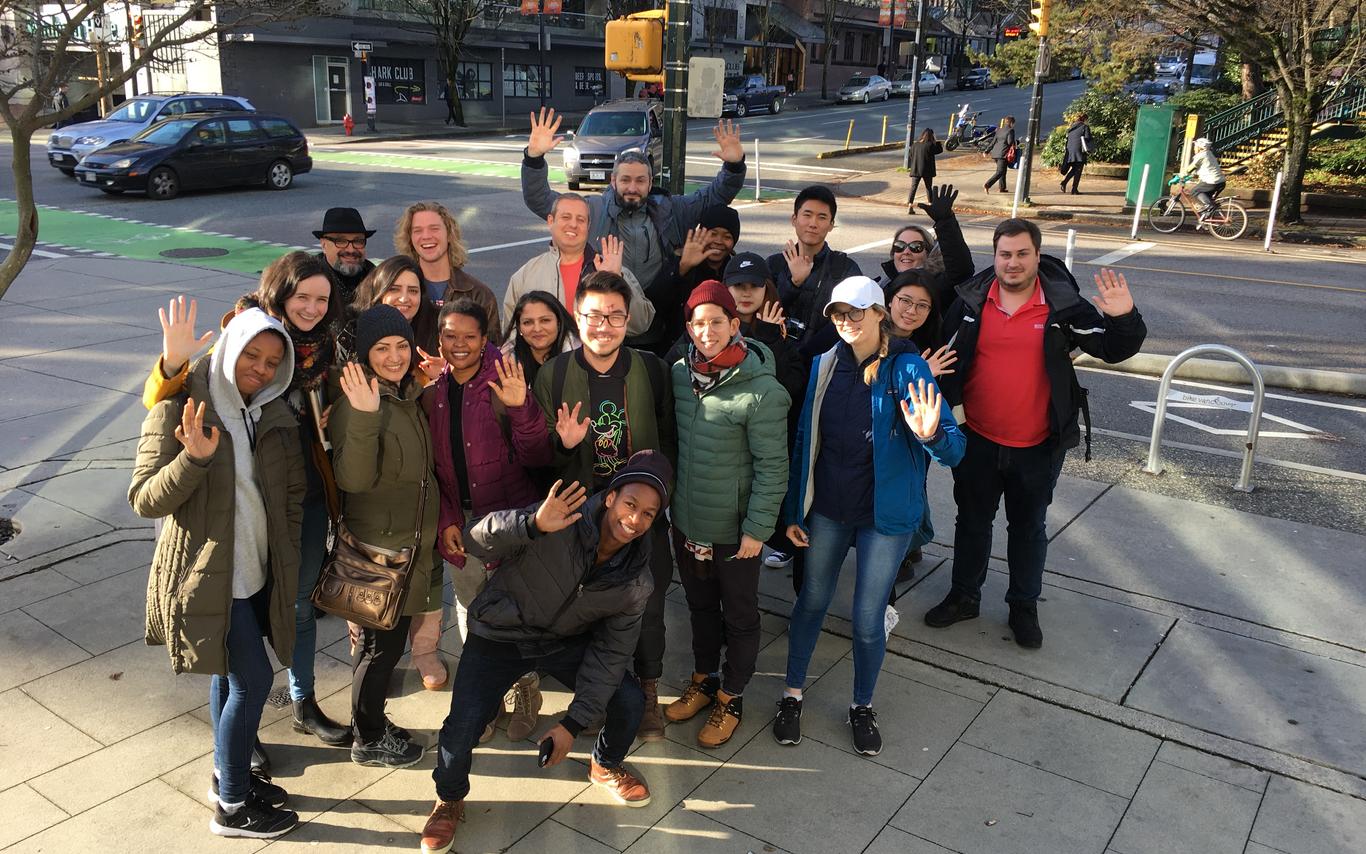In this post, Dr. Marco Bevolo shares his experience participating in the Vancouver Learning Lab - he joins SLM students on their exploration of how leisure can influence change towards sustainability.
In December 2019 I spent two weeks as a Visiting Scholar with the World Leisure Centre of Excellence at Vancouver Island University. My two weeks were attached to one of six courses required by the Master of Arts in Sustainable Leisure Management, SLM 604 Influencing Change towards Sustainability. For my business speaker standards, this was an odd choice that I did not hesitate in taking for reasons that, at the time of the application, were unclear to me, first of all. Sometimes you have to follow your instincts, don’t you? After a careful selection process, by multiple interviews, and a much longer administrative process, thanks to the active support by Mr. Ewout Sanders, my manager at the Academy for Leisure and Events at Breda University of Applied Sciences (The Netherlands), the program was defined, booked and I was ready to go.
As part of SLM 604, I took part in the Vancouver Learning Lab, a three-day experiential field-based event organized in the city of Vancouver by the instructor of that course, Dr. Suzanne de la Barre. Accompanied also by Dr. Patrick Brouder, the BC Regional Innovation Chair (VIU), and our Ph.D. student guest, Alix Varnajot (Oulu University, Finland), the aim was to connect the 17 domestic and international SLM students to the everyday reality of communities, social entrepreneurs and the city beyond real estate of design cosmetics. Having already been impressed by the educational authority, scholarly precision and pastoral vocation demonstrated by Suzanne, I was truly inspired by her work, the quality of the program, and the reaction of the students. Meaningful change was expressed in all of our visits: from the YWCA, a social center in support of marginalized women and their children and incorporating budget hotel functions, to Edible Canada, a Canadian culinary innovation hub on Granville Island, to Skwachàys Lodge, a First Nation hotel and art gallery; from a former police station turned community centre/co-working space, 312 Main, to attending an event that showcased urban innovation projects organized by the City of Vancouver’s CityStudio, to Fabcycle, a textile reuse space and Feral, a strength conditioning and empowerment collective (and both of these stemming from the work of Groundswell, an alternative business school and social enterprise incubator). The students from countries as diverse as Tanzania, Benin, Vietnam, Iran, China, UK, India and Canada, had the unique opportunity to connect at both scientific and existential levels, with minor protagonists of a major movement addressing societal challenges and change by making a difference. The Vancouver Learning Lab forms the highlight of my Canadian experience. In particular, the variety of premium proposition and socially focused enterprises enabled students to analyze first-hand the powerful potential of re-thinking business in view of hybrid, yet genuine and authentic missions.

Class held on Granville Island

Visiting Fabcycle
The Vancouver Learning Lab articulated professional levels of value that I have rarely experienced in my 20 years of work on urban futures and trends research. In order to recall an experience at equivalent scientific excellence, I perhaps have to go back to a 2006 Trend Walk by Steven van der Kruit, then at Firmenich, nowadays consultant to the Google Think Tank and to Rituals, in Williamsburg, New York. I can only praise the sociological and cultural value of the program that has considerable potential as a format also for business audiences. Even more importantly, however, the students were touched by the dialogs and connections made throughout the three days, from CEO’s of social enterprises to activists, resulting in a true transformational experience of great existential power. In my opinion, the Vancouver Learning Lab is everything that a Master’s level education should really be, in order to enable a next generation of leaders to emerge.
As for myself, just like the protagonist of Virginia Woolf’s “To the Lighthouse”, in the end I also have had my vision. In a very intense business presentation, Frank Antoine, CEO and Founder of Moccasin Trails, a First Nation tourism business, explained the meaning of life by means of a gestural metaphor of great elegance, using his two hands. While the presentation was public, Frank addressed me as the two of us happened to be the only two people over 50 years old in the audience. Together with my meetings with the Elders on Campus at Vancouver Island University, and my observation of the campus’ First Nation building – Shq’athut - A Gathering Place – open to all, but especially dedicated to First Nation students, I could appreciate in depth this ancient culture, and its epiphanic, environmentally integrated and highly inclusive ethos. This opportunity to learn about a fascinating culture finally appreciated, acknowledged and valorized by a sincere reconciliation process, was perhaps just the highlight of an experience that I can only describe as a true privilege.
My final takeaway from the Visiting Scholars program at Vancouver Island University and from the Vancouver Learning Lab, is simply: “A better life is possible”, as the work by Suzanne and Joanne Schroeder (Co-Director, WLCE), and their powerful ethical optimism, were truly inspirational. As enablers of this exchange, I would like to thank, besides Suzanne, Joanne and Ewout, also Yvonne Klerks, MSc, lecturer at Breda University of Applied Sciences and Member of the Board at the World Leisure Organization, who approved and monitored this process, Kelly April, Department Assistant at VIU, who worked hard to organize everything in great detail, Vanessa Moraes, WLCE Program Assistant, and of course all the students, faculty members and friends that I have greatly enjoyed meeting in Nanaimo and Vancouver.
Dr. Marco Bevolo, PhD, is currently a Lecturer in International Leisure Management at Breda University of Applied Sciences, in the Netherlands.
